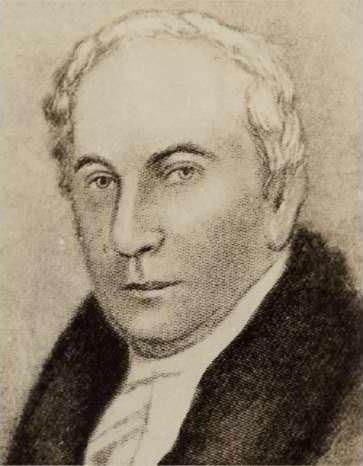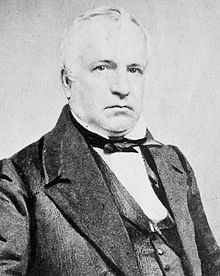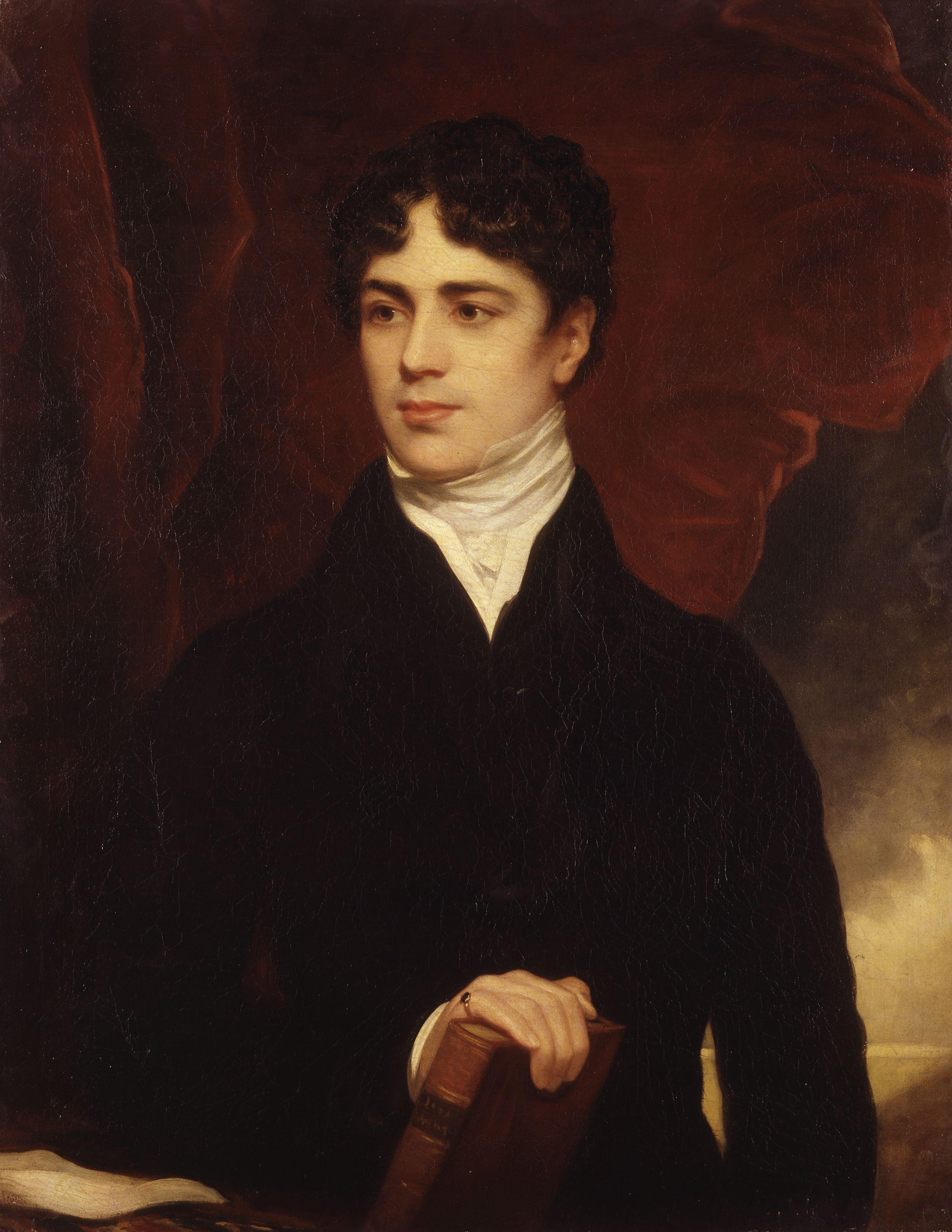Individual Impact on Canadian Culture and Identity 1774-1867
Loyalists
Loyalists were American colonists who remained loyal to the British Crown, even after the American Revolution. During and after the war, thousands of Loyalists fled to British North America. This vastly boosted the population, and the Loyalist ultimately founded Upper Canada. The Loyalists undoubtedly impacted the politics and culture of Canada in ways felt even to this day. Most of the Loyalists were of a lower social class-- blue-collared workers, farmers, tradespeople, etc. The Loyalists were also of varied cultural and ethnic backgrounds, and Black Loyalists made up a large contingent of refugees. Large numbers of Loyalists settled in present-day Ontario, forming the basis for Canada's most populated region. Loyalists also proved vital in the establishment of religious, government, educational and social institutions. The Loyalists and their descendants imparted a strong and continually existent influence on Canada. From the manner in which we speak (more similar to Americans than the British), the conservatism and wish for evolution as opposed to revolution, and the acceptance of a multicultural society the fingerprints of these individuals are recognizable even today. Some Loyalists include the famed Joseph Brant, soldier and public servant Sir John Johnson and descendants include Egerton Ryerson.
Joseph Brant

Thayendanegea or Joseph Brant was a Mohawk War Chief, British Loyalist, interpreter and political leader. During the American Revolution, he was loyal to the British, and he served as a great diplomat encouraging Indigenous tribes to unite and share his views and beliefs. As a result of his political power, he met with some of the most influential people of the time, including George Washington and King George III. After the British were defeated in the American Revolution, Brant led Mohawk loyalists and other Indigenous peoples to Upper Canada, where they settled along the Grand River, upon land they were granted in the Haldimand Proclamation. This land became known as Brant's Ford, or as it is called today 'Brantford.' Joseph Brant was the most well-known Indegineous person of this era, and his tenuous fight for Indigenous land rights helped further these peoples political standing in Canada. ADD
Sir Frederick Haldimand

Haldimand was an army officer and governor who served as Governor of Quebec from 1778-1786. After the American Revolution ended Haldimand was responsible for settling the Loyalists from the USA in the Canadian Territory, which he carried out well. The Haldimand Proclamation gave the Six Nations people land rights along the Grand River.
Ezekial Hart

Ezekiel Hart was a businessman and politician who became the first Jew elected to public office in British North America when he was voted into the Legislative Assembly of Lower Canada. However, other members of the Legislative Assembly blocked him from swearing into office on the basis of his Jewish faith. Twice more, Hart was elected only to be blocked once again from swearing the oath. Hart was significant as he was among the first high-profile Jews of this time, and by being blocked from office, the antisemitism present was clearly illustrated. Hart's ordeal inspired the next generation of Jews to fight for their democratic rights and today Jews are a fully integrated, important part of Canadian society.
Sir Francis Bond Head

Sir Francis Bond Head was a soldier turned colonial administrator, who was appointed lieutenant-governor of Canada in 1835. At the time of his election, he was thought to be fairly moderate and was intended to act as a peacemaker between conservatives and progressives as change occurred in Upper Canada. He was even positively welcomed by popular Reformers of the time such as Robert Baldwin. However, Head was deeply conservative and his beliefs and opinions ran counter to much of the population who wished for reform, and the Reformers he oversaw. Head appointed some of the Reformers to the Executive Council, but his neglection lead to the mass resignation from the Reformers on the Council. As tensions between Head and the Reformers grew, he lost support of the public as well and was eventually removed from his role. Although pinning blame solely on Head would be fallible, the Rebellion of 1837 was largely sparked by Head's incompetence and hostility towards the Reformers.
Sir Louis-Hippolyte LaFontaine

Sir Louis-Hippolyte LaFontaine was a politician, who assumed a prominent role in reforming Canada. Although friendly with those leading the rebellion in Lower Canada, LaFontaine was opposed to the conflict and did not take part. Following the rebellion, LaFontaine greatly advocated for amnesty for the rebels, which was achieved. In the years following, LaFontaine, was prominent in achieving responsible government and actualizing his vision. LaFontaine was relentless and furthered Canada's independent political identity. Along with Robert Baldwin, LaFontaine also formed a united party of Reformers from Upper and Lower Canada a vital step in creating proper independent democracy in Canada.
The Americans (War of 1812 & The Treaty of Ghent)
The War of 1812, fought between the United States and British North America, was a conflict that caused much impact on the futures of both the USA and Canada, both in its results and in what didn't happen. The war effectively ended in a 'tie' with the Treaty of Ghent officially ending the fighting in 1814. Buoyed by the War Hawks and American President James Madison, the Americans decision to attack was the culmination of years of hostility, and although the Treaty of Ghent did little to quell those issues it did ensure that all conquests of the war were returned and hostilities against the First Nations people from both sides was to be ceased. The Treaty of Ghent was notably negotiated by famed American leader John Quincy Adams. The War of 1812 ended up being fairly inconsequential but had the potential to cause seismic changes to the future of North America.
Louis Joseph Papineau

Louis Joesph Papineau was a lawyer and politician who oversaw French Canadians in Lower Canada (present-day Quebec) prior to the failed uprising from the British crown in 183. When he was first elected Papineau was relatively moderate, however over time his views grew more radical and he began to demand reforms in favour of French Canadians. When the demands were not met, Papineau participated and aided the attempted revolution against the government in collaboration with William Lyon Mckenzie. Following the failed revolution, Papineau fled to the USA and then Paris before eventually being granted amnesty 1844, and returning to the now united Canada. Papineau was a vocal critic of the Act of Union and served as the main opposition of the time. Papineau left a major impact as perhaps the first vehement defender of French nationalism in Canada, a sentiment which still exists today. Papineau was an effective political leader for the French people, and although he failed to create any real change he was a perfect encapsulation of the feelings of discontent within Canada's French population.
William Lyon Mckenzie

William Lyon Mckenzie was a Scottish born journalist and politician. He was an outspoken and fiery politician and after being elected to as a representative in the General Assembly in 1828 he was repeatedly expelled due to his verbal attacks on the politicians, only to be voted back into office. Mackenzie was eventually elected as the first mayor of Toronto, a position he held for three years until organizing the rebellions of 1837. The rebellions ultimately failed and Mckenzie entered exile. He was eventually pardoned, reentering Canada, and in 1851 he was elected to Parliament for Haldimand. Mckenzie continued expressing his radical beliefs, opposing the large-scale corporations and pushed the ideas of small-scale industrialism. Many of the democratic ideals Mckenzie championed are the same ones that Candians still value today, including striving equality. Following his death, Mckenzie has become symbolic of Canadian radicalism.
Sir John A. Mcdonald

John A. Macdonald was a lawyer, businessman, and politician. Macdonald is often referred to as a "nation-builder" as he played a vital role in shaping Canada. Macdonald was one of the driving forces in creating the British North America Act and the subsequent union of provinces that make up Canada. The British North America Act, also known as the Constitution Act, reflected many of the views held by Macdonald. Although he did relinquish some control to regional governments due to the great diversity already existent in Canada, Macdonald wished to implement a strong, centralized, federal government. This same system still exists today, with the federal government holding indisputable power over provincial and municipal governments. In many ways, the current Canadian provincial political system is a direct result of John A. Macdonald's work. After his key role in creating the Canadian constitution, Macdonald was appointed as the first Prime Minister of Canada, becoming the first official figurehead for Canadians. Macdonald was relentless and focused on achieving his vision for Canada and despite a somewhat controversial legacy, his positive impact on the founding of the Canadian government is unmistakeable.
John George Lambton Durham

John George Lambton Durham, better known as Lord Durham was a British political reformer, who came to Canada in May 1938 as Governor-General of British North America. His main duty was to investigate rebellion grievances in North America, and upon his resignation just four months into his new role, Durham returned to London where he wrote the report titled "Report on the Affairs of British North America." The main recommendation of his report was to unite Upper and Lower Canada into one province. Durham believed that French Canadians had been left without a strong sense of people or culture and that the unity would speed up the assimiliation of these people into Canadian culture. The union of the two provinces was brought into effect in 1841. Because of his suggestion of French assimilation, Durham was not a popular figure among French Canadians. However, his recommendations had a massive impact on the future of Canada and he is generally aptly remembered as an influential person. The reforms sparked by Durham's report were a vital piece in Canadian democracy and led the way to responsible government in Canada. The Durham report was a key step in Canada's evolution towards nationhood.
Robert Baldwin

Robert Baldwin was a lawyer and politician serving in Upper Canada. Baldwin, along with other councilors, sparked the rebellions of 1937, through their resignations. However, Baldwin remained neutral during the insurance. Following the failed revolt, Baldwin met with Lord Durham where he suggested the ideas of responsible government, which became the central suggestion of Durham's report. When responsible government was granted, Baldwin oversaw a multitude other significant achievements and affirmed the system as one that would succeed. Baldwin, along with Louis-Hippolyte LaFontaine was also key in uniting Reformers of (former) Upper and Lower Canada. Baldwin also contributed to the establishment of the University of Toronto and forming viable municipal governments in what was formerly Upper Canada. Baldwin's numerous achievements were noteworthy and affirm his position of influence on the development of Canada and Canadian identity.
